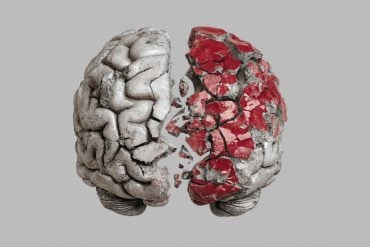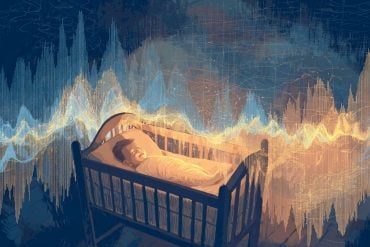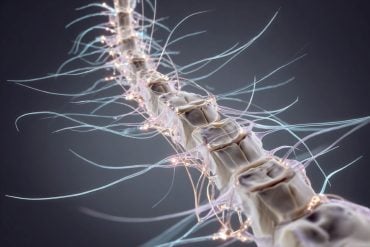Summary: A new study highlights the severe physical and psychological consequences linked to ketamine addiction, with many users unaware of the risks until dependent. Researchers found high rates of bladder damage, painful organ cramps, low mood, and anxiety among those with ketamine use disorder.
Despite the serious health impacts, nearly half of affected individuals had not sought treatment, and many reported poor experiences with healthcare providers. The findings call for better public awareness, improved clinical recognition, and more effective treatment programs for ketamine addiction.
Key Facts:
- Severe Health Impacts: 60% of ketamine users reported bladder or nasal problems, and over half experienced painful organ cramps.
- Low Treatment Access: Only 56% sought help, and only 36% of those were satisfied with their care.
- Awareness Gap: Many users were unaware ketamine could cause addiction until it was too late, highlighting urgent public education needs.
Source: University of Exeter
Ketamine addiction is linked to high levels of physical health problems and psychological consequences, with nearly half of those affected not seeking support or treatment, new research has revealed.
The study, led by the University of Exeter and University College London (UCL), is the largest to date to explore the experience of people currently living with ketamine addiction in-depth.
Supported by NIHR, the research included interviews with users, in which many said they were not aware of the risks of addiction until their ketamine use was already out of control, with one calling ketamine “the heroin of a generation”.
Researchers studied 274 people who identified as having ketamine use disorder, and found previously under-reported symptoms. Of those, 60 per cent had experienced bladder or nasal problems.
The study also found that 56 per cent reported K-cramps – a painful organ cramping linked to excessive ketamine use, with which can often drive people back to the drug to seek relief from the pain of this symptom.
Bladder problems can involve needing a full bladder removal, and the need for a urostomy bag to collect urine.
Psychological symptoms included cravings, low mood, anxiety and irritability. The research, published in Addiction, found that only 56 per cent of participants sought treatment, and only 36 per cent of those were satisfied with their care.
Study author Professor Celia Morgan, of University of Exeter, said: “We know that ketamine use is on the rise, with a number of high-profile tragedies linked to ketamine addiction.
“Meanwhile, a growing number of clinical trials are finding therapeutic benefits involving ketamine in carefully-controlled environments, combined with therapy.
“Our research is the first to analyse in-depth the experience of people using very large amounts of ketamine, and shows the devastating physical health problems people can face with dependent ketamine use.
“Our study also highlights the barriers that people with ketamine addiction face when they try to seek treatment, often being sent away from treatment services.”
Uk government data indicates that ketamine use has more than doubled since 2016, with a threefold increase among 25-year-olds.
To investigate the impact on those who develop an addition to ketamine, the study involved both questionnaires and interviews.
In the study, 59 per cent of participants reported that there was “definitely not” enough awareness in education and among peer groups around the risks associated with ketamine, with many reporting that they did not know the drug could be addictive. Many reported feeling too embarrassed to seek treatment.
In interviews, one participant said: “People know the risks about Heroin and Cocaine, but not how the addiction to Ketamine can become even stronger than being addicted to heroin or cocaine.”
While another told researchers:
“I feel it is the heroin of a generation, and more information will become available once more time passes and more people my age begin to suffer so greatly from misuse that it can’t be hidden anymore.
Participants also painted a picture of a lack of understanding among health professionals. One said: All they did was give me painkillers and send me on my way”, while another reported “GP doesn’t think ketamine is addictive, just told me to stop, doesn’t have a clue”.
Co-author Rebecca Harding, a PhD candidate at University College London, said: “Our study highlights the need for greater recognition of the significant physical and psychological risks associated with ketamine, both among healthcare professionals and the general public.
“We need improved treatment programs, while raising awareness of ketamine use, to better support those seeking care. By focusing on evidence-based treatments, such as specialised group therapy and pharmacological interventions, we can improve access to effective treatment and address the growing challenge of ketamine use disorder.”
About this addiction and mental health research news
Author: Louise Vennells
Source: University of Exeter
Contact: Louise Vennells – University of Exeter
Image: The image is credited to Neuroscience News
Original Research: Open access.
“The landscape of ketamine use disorder: patient experiences and perspectives on current treatment options” by Celia Morgan et al. Addiction
Abstract
The landscape of ketamine use disorder: patient experiences and perspectives on current treatment options
Aims
To report the symptoms and aetiology of ketamine use disorder (KUD), gauge the effectiveness of current treatment services and identify strategies to enhance patient access and outcomes.
Design
Mixed-methods, cross-sectional questionnaire. Electronic survey from November 2023 to April 2024.
Setting
Participants were recruited through snowball sampling, social media and referrals from UK addiction treatment services. The survey was open to international participants, with responses collected from the United Kingdom, United States, Canada, Europe and Australia.
Participants/Cases
A total of 274 individuals with self-identified KUD, including both treatment-seeking (40%) and non-treatment-seeking (60%) current or former ketamine users. Participants’ ages ranged from 18 to 67 years old, with 47.7% identifying as male. Additionally, 58.8% reported a diagnosed mental health disorder.
On average, participants consumed 2.0 g of ketamine per day, with treatment-seeking individuals reporting higher average use (M = 2.67 g) than non-treatment-seeking users (M = 1.68 g) (P < 0.001).
Measurements
Participants completed an online questionnaire addressing their attitudes toward ketamine and treatment services, including questions pertaining to their symptoms of problematic ketamine use, perceptions of education and awareness about KUD, opinions of existing treatment options, and facilitators for seeking treatment.
Findings
The study identified various physical symptoms associated with KUD, with bladder problems (60%), nasal problems (60%) and ‘K-cramps’ (56%) being commonly reported among all users. In response to these symptoms, the majority (56%) did not seek treatment; among treatment-seeking users only 36% reported feeling satisfied with their care.
Symptoms of abstinence syndrome were also identified, including cravings (71%), low mood (62%), anxiety (59%) and irritability (45%). Treatment-seeking participants reported that the services they used had little (31%) or some (31%) awareness of ketamine, were not tailored to ketamine use (43%) and were generally only somewhat effective (43%).
Fifty-nine percent of participants reported that there was “definitely not” sufficient awareness in education and peer groups about the risks associated with ketamine use. When asked about the most important factors when choosing a treatment program, cost/affordability was the most cited for all participants.
Conclusions
Ketamine use disorder (KUD) appears to be associated with a high prevalence of physical and psychological symptoms, including some specifically linked to abstinence. Despite this, most individuals with KUD do not seek treatment, and existing services are often perceived as ineffective.








